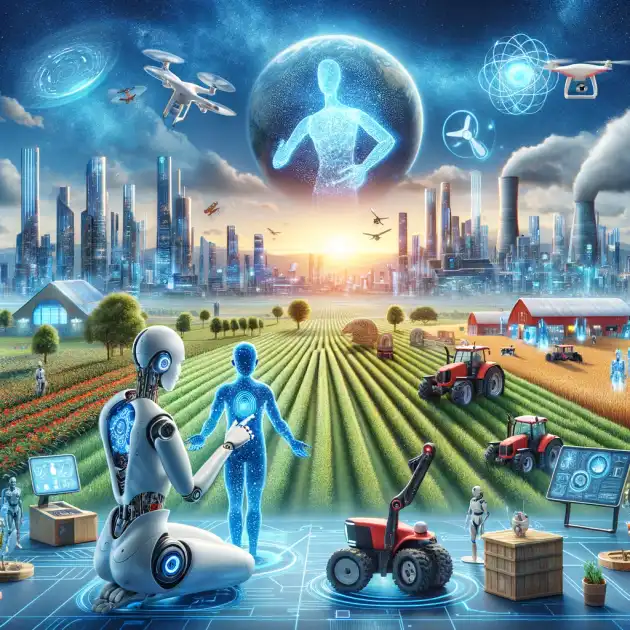Our Future is AI - Choosing the Companion You Want to Live With
Artificial Intelligence (AI) is not just a fleeting trend; it's a transformative force reshaping various aspects of our lives, from healthcare and agriculture to social care and beyond. But as we stand at this crossroads, it's crucial to ponder which AI future we want to embrace. This post delves into the critical considerations for choosing the AI that aligns with our values and needs.
The Imperative of AI in Healthcare
The traditional healthcare model is buckling under the weight of skyrocketing costs, outpacing GDP growth. Yet, despite these expenditures, we still face dismal survival rates for major cancers and inadequate detection rates for treatable neonatal conditions. The shortage of radiologists and consultants exacerbates the issue, leading to prolonged and costly diagnostic processes. AI offers a beacon of hope, with the potential to revolutionize healthcare by enhancing detection, diagnosis, and treatment processes.
The Endless Use Cases of AI
Beyond healthcare, AI's applications are boundless. In developed economies, where human resources are limited, AI can significantly impact sectors like building maintenance, social care, agritech, and climate change mitigation. For instance, the UK's building maintenance costs in 2020 soared to $81 billion, and public spending on adult social care reached $34 billion annually. AI can offer more efficient and cost-effective solutions in these areas.
Navigating the Evolution of AI
AI has evolved from Symbolic AI in the 1950s to the Generative AI of today, powered by transformers like Google's model in 2017. Generative AI, leveraging large language models (LLMs) and other techniques, can efficiently train predictive models across various domains, from text and images to programming languages and robotics. However, this evolution also brings challenges, including ethical concerns, transparency issues, and the risk of job losses and misinformation.
The Ethics of AI: A Double-Edged Sword
While AI holds promise, it also poses ethical dilemmas. The "black box" nature of neural networks raises questions about bias, censorship, and transparency. Furthermore, the potential for job displacement, deepfakes, and cybercrime cannot be ignored. Regulation, such as the EU AI Act, may be necessary, but it's crucial to consider its implications carefully.
Generative AI: Power and Pitfalls
Generative AI, despite its capabilities, comes with its own set of challenges. Issues like hallucination, drift, and confabulation can undermine its reliability. Moreover, the provenance of training data, copyright concerns, and the potential for adversarial AI highlight the need for vigilance and responsible use.
AI and Robotics: A Synergistic Future
The integration of AI with robotics opens new horizons, from industrial and agricultural robots to personal and defense robotics. However, safety and ethical considerations remain paramount, especially as robots become more integrated into human environments.
Choosing Your AI Companion
As AI becomes an integral part of our lives, it's essential to choose wisely. Look for AI systems that prioritize privacy, ethics, and intuitiveness. They should respect individual autonomy, be accessible, and maintain a shared history. In essence, the AI companions we choose should enhance our lives without compromising our values.
Conclusion: Navigating the AI Landscape
Our future is undeniably intertwined with AI. As we navigate this landscape, it's crucial to consider not just the technological capabilities but also the ethical and social implications. By making informed choices, we can ensure that the AI future we embrace is one that aligns with our aspirations and values.
